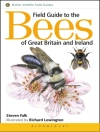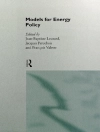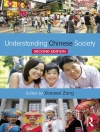Arts Based Research is ideal for students, researchers, and practitioners. This unique book provides a framework for broadening the domain of qualitative inquiry in the social sciences by incorporating the arts as a means of better understanding and rethinking important social issues. In the book′s 10 thought-provoking chapters, authors Tom Barone and Elliot W. Eisner–pioneers in the field–address key aspects of arts based research, including its purpose and fundamental ideas, controversies that surround the field and the politics and ethics involved, and key criteria for evaluation.
Cuprins
Preface
Acknowledgments
1. What Is and What Is Not Arts Based Research?
2. Why Do Arts Based Research?
Arts Based Research Example I: ?Notes From a Marine Biologist?s Daughter?
3. Yes, But Is It Research?
4. Who Can Do Arts Based Research?
5. Who Can Be the Audience for Arts Based Research?
Arts Based Research Example II: ?Broken & Buried in Arkansas?
6. Can Arts Based Research Be Fictive?
7. How Might Arts Based Research Be Both Political and Ethical?
Arts Based Research Example III: ?Ways of Being at Risk’
8. What are Some Criteria for Assessing Arts Based Research?
9. Is There a Place for Theory in Arts Based Research?
10. What Are Some Fundamental Ideas from Arts Based Research?
References
Additional Readings
Index
About the Authors
Despre autor
Elliot W. Eisner is professor emeritus of education and art at Stanford University. He has taught at Stanford since 1965 where he is best known for his scholarship in three fields: arts education, curriculum studies, and educational evaluation. His research interests focus on the development of aesthetic intelligence and the use of critical methods from the arts in studying and improving educational practice. Dr. Eisner has lectured throughout the world and has published more than 17 books, including The Enlightened Eye: Qualitative Inquiry and the Enhancement of Educational Practice, which explores the uses of critical methods from the arts in studying and describing schools, classrooms, and teaching processes. Dr. Eisner is the recipient of numerous awards for his work, including the 2005 Grawemeyer Award, the Palmer O. Johnson Memorial Award from the American Educational Research Association, a John Simon Guggenheim Fellowship, and a Fulbright Fellowship. Professor Eisner has served as president of the American Educational Research Association, the National Art Education Association, and the International Society for Education through Art, and the Jogn Dewey Society.












